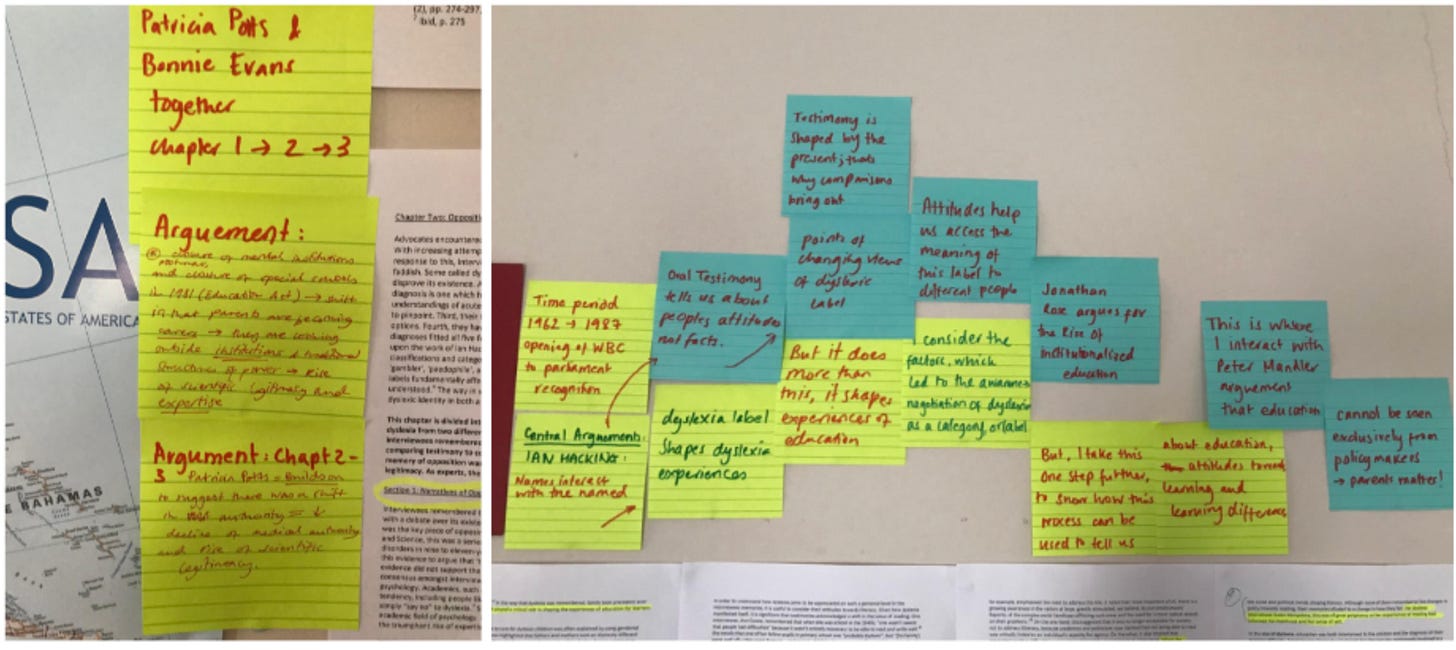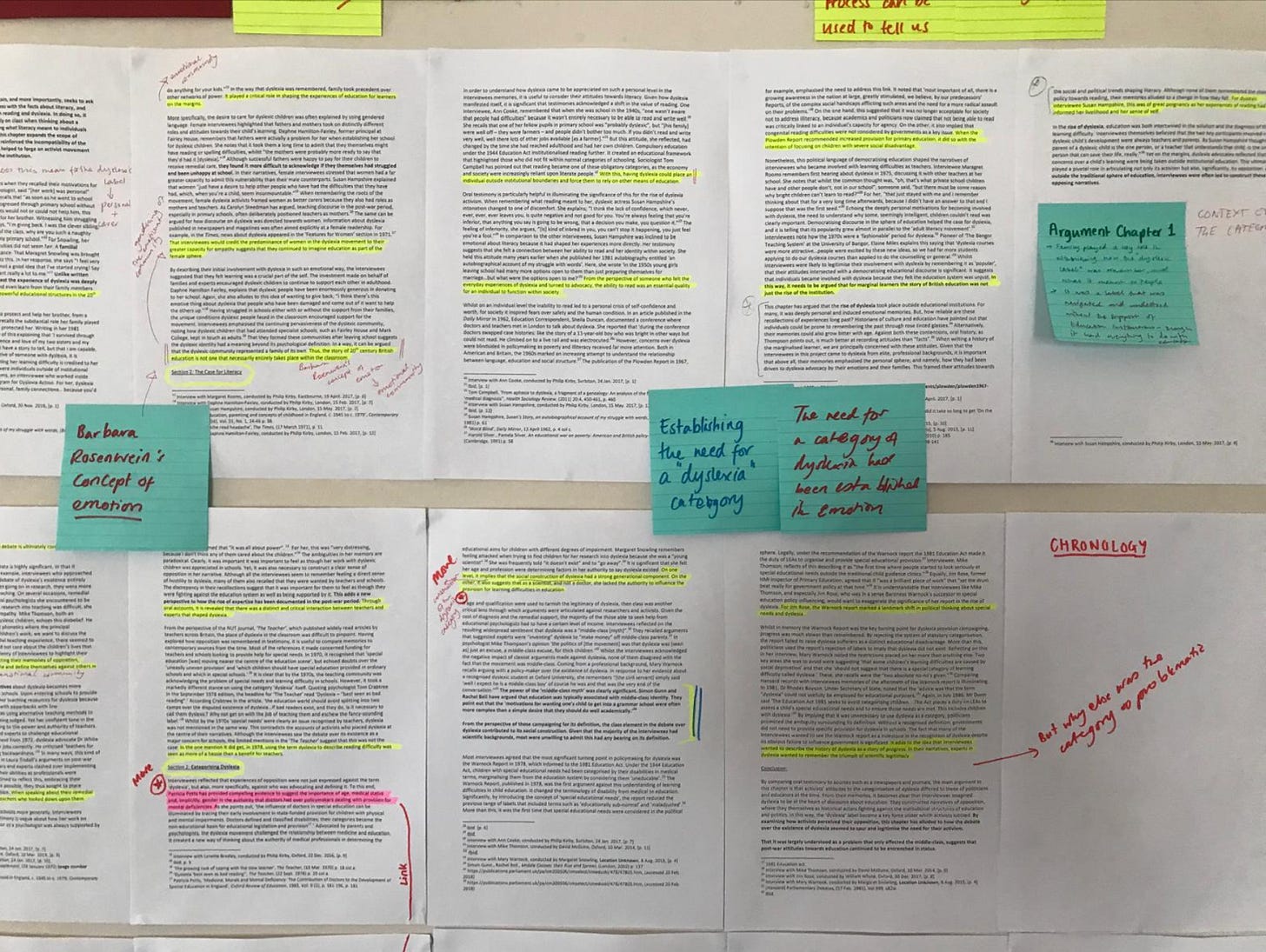Not 'The Regular' Way.
I love books but hate to read. I think slowly but visualize quickly. I speak three languages, but can’t spell disleksia. What am I?
Growing up, I was always at the bottom of the class. My worst subject was English, followed closely by anything that involved reading and writing. My teachers were quick to say it was likely because we spoke multiple languages at home. I could never bring myself to tell them my first language was actually English... Instead I thought, if I worked ten times harder than everyone else, nobody would notice.
After two degrees in History and Education, people are often surprised when I tell them I’m dyslexic. They say ‘but you’ve done this and that, there’s no way you can be dyslexic’. It’s safe to say autocorrect, spell check and lately generative AI have all become close allies.
So, what is dyslexia? It’s a question likely best answered by a psychologist, and not a historian. Believe it or not, dyslexia was first described as ‘word-blindness’ in 1877 by Adolf Kussmaul, a Professor of Medicine at Strassburg. He found his patients had no problems with their eyesight, yet struggled to read printed text. Fast forward in time and the British Psychological Society have defined dyslexia as a difficulty in developing accurate and fluent reading and/or spelling. But they also frustratingly say that there is no single, universally accepted definition.
To me, ‘word blindness’ feels like a far more accurate name than ‘dyslexia’. When I try to parse through lots of written text, it can feel like the words are shifting and swimming beneath my eyes. They look more like shapes to me, which threaten to dissolve into a mass of meaningless gobbledegook, if I’m not careful.
Talking with friends, it’s become increasingly clear to me that I process information and language in a pretty different way. So I thought I would write down a few of my tips and tricks, or ‘coping mechanisms’, in case it’s useful for others! More than that, I am hoping this serves as a way to broaden the discussion around other ways of thinking.
Tricks of the dyslexic’s trade: drawing, gutting, repeating
Visualize words, sentences and paragraphs.
This might sound a bit weird, but I visualize reading and writing. Growing up, I used to trace over letters with my fingers and practice drawing them. It was more about learning how something should look rather than actually learning how to spell a word. While the state of my spelling might not be as important as it once was (cough cough, thank you spell check), I’ve always wanted to write. For me, putting together an essay, the same visual rules still apply. A paragraph is just a picture, an essay is a collection of visual representations that I’ve put together. When I want to write, I have to draw.
I realize that to those that don’t think this way, this might all sound absolutely crazy but there’s really no better way to explain it. I mostly think in pictures, and it turns out a lot of dyslexics do.

Gutting.
My entire university degree was all about reading. A lot of reading and a bit of writing. For someone that typically finds reading pages and pages of text akin to trying to run through water, this was daunting to say the least. ‘Gutting’ is the best technique I’ve found to absorb as much information as quickly as possible. And yes, this is a reference to how a fishmonger guts a fish. Rather than just reading a book or an article start to finish, you break it up into its constituent parts. I look for patterns to see how the author writes, understand when they use examples to illustrate points, where they outline their arguments and how they reach conclusions. Then make that the top priority to absorb.
Essentially, I read in chunks, discard the waffle, and get to the meaning of what they are saying as fast as possible. Deconstructing a book might not be the way it was intended to be read, but ‘the regular way’ would take me an irregularly long time. Sometimes it’s better to just do it differently.
Repetition, repetition, repetition…
This is a lesson I learnt the hard way. In the English education system, as in many other countries, there is an obsession with making students read out loud. Growing up, this was my version of hell. I just cannot for the life of me read fluently out loud without having read a sentence multiple times ahead of time. If I didn’t read the chapter or paragraph several times before, I would stutter horribly and say the wrong thing. Safe to say, this is the kind of humiliation that you don’t want to experience as a teenager.
Doing the same thing over and over again feels extremely counterproductive. Reading, re-reading and writing and re-writing. It’s frustrating. I wish I could read a paragraph once and just know its meaning. But, unfortunately, I can’t and practice truly does make perfect. I hate this ‘coping mechanism’ the most because it’s not really a cheat. It doesn’t save time, it takes time.
Thinking and doing differently
I wanted to share all of this because in education, work and life we tend to gravitate towards uniformity. But in my mind, if your brain doesn’t compute that way, find another way that works for you. I’ve felt everything from anger to embarrassment at not being able to absorb information the same way that the people often around me do. Unfortunately, most of the world and our interactions within it are designed for people in the middle. For those of us on the edge in some things, I wish someone had told me some of these things a little earlier.
Finally, thank you to Dr Siân Pooley, who never made me feel stupid and kindly suggested it might be time to get tested for dyslexia. And to Felix von Stumm for proof reading everything I ever write.





Loved this - especially on that everything around is designed for those in the center of the normal curve. I haven't been formally diagnosed with any kind of neurodivergence, but as someone who is suspected to have some form of neurodivergence, I totally relate to you on the shock I've realized when the rest of the world doesn't think/operate the way I do haha.